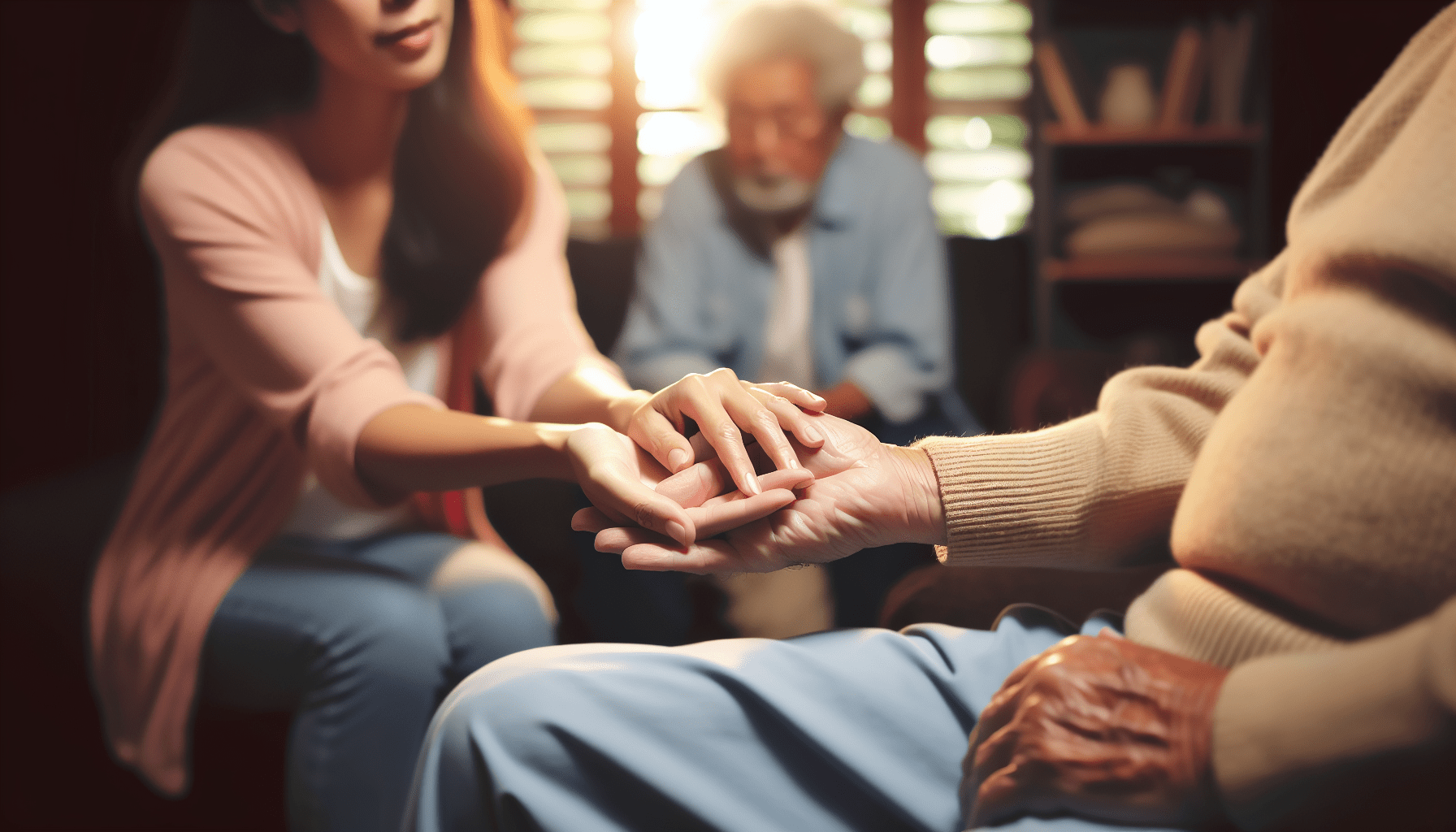Ever find yourself in a tough situation where you have to lend a hand to someone older during a crisis? Elderly individuals certainly need a bit more care and attention during emergencies. It’s a fact of life that as age creeps up, mobility and quick-thinking sometimes don’t keep pace, placing them at higher risk during emergencies. But if you’re prepared with the right knowledge, you can make a world of difference in those critical moments.
Let’s navigate this vital topic, ensuring that you’re armed (pun intended) with effective strategies for every emergency imaginable. By the end, you’ll be better prepared to offer critical assistance and perhaps even save a life.

Understanding the Needs of the Elderly in Emergencies
Thinking about why elderly individuals need special attention during emergencies might seem obvious, but let’s break it down. As people get older, their physical and mental abilities might not be as sharp as they used to be. This can drastically alter how they respond to dangerous situations. By understanding these changes, you can tailor your approach to helping them.
Physical Limitations
First, the physical aspect. Mobility issues can come into play, impairing an elderly person’s ability to move quickly or assess escape routes. Vision and hearing might also decline as they age—two critical senses in identifying potential threats and reacting promptly. Keeping these factors in mind can help you approach emergency situations with extra awareness and sensitivity.
Cognitive Changes
Then, there’s the brain—it can be a bit slower to process information in the elderly, leading to delays in recognising emergencies and acting accordingly. Memory issues may make it difficult for them to remember key emergency steps or contact details. Offering clear, calm, and repeated instructions will often be necessary and helpful.
Emotional Vulnerability
Lastly, consider the emotional standpoint. Stressful situations might provoke fear or anxiety more intensely in elderly individuals, potentially leading to confusion or panic. Your calming presence and clear, reassuring communication can help them navigate their feelings and keep focused on safety.
Steps to Prepare Before Emergencies
While we can’t predict every emergency, being prepared can significantly lessen its impact. Here’s what you need to know to be ready when assisting elderly individuals.
Emergency Contacts List
Compile a list of emergency contacts including family, neighbors, and medical professionals who can be reached in times of need. Make sure this list is easily accessible to both you and the elderly individual.
Medical Information
Be familiar with any medical conditions, all medications, dosages, and the schedules on which they should be taken. This information is crucial in emergencies where immediate medical intervention may be required.
First Aid Skills
Knowing basic first aid is invaluable. Taking a local first aid course can prepare you to handle common emergencies like falls or minor injuries, which can be more severe for seniors.
Home Safety Assessment
Evaluate the living environment for potential hazards. Ensure that smoke detectors, carbon monoxide alarms, and fire extinguishers are working, and that there are clear, uncluttered pathways for emergency evacuation.
Emergency Supplies Kit
Build an emergency kit with essentials tailored specifically for the elderly individual you’re assisting. Include water, non-perishable food, medications, eyeglasses, a flashlight, batteries, a first-aid kit, and copies of relevant documents.
Responding to Specific Emergencies
Knowing how to react to specific types of emergencies is key to ensuring the safety of elderly individuals. Let’s tackle some probable situations and how best to respond.
Falls
Falls are a leading cause of injury in the elderly. If a fall happens, make sure they stay still until you assess for injuries. Check for any pain or visible injury. They might feel embarrassed or urge you to help them up, but be methodical—ensure they’re ready to move and support them carefully while doing so, trying to keep movements minimal to prevent further injury.
Fires
Act fast in case of a fire. Quickly guide them to the closest, safest exit. If smoke is present, encourage them to stay low to the ground and cover their mouth if possible. Don’t attempt to retrieve belongings—safety first. Once outside, call emergency services and ensure they’re accounted for with warmth and hydration if needed.
Medical Emergencies
In cases like heart attacks or strokes, time is paramount. Call emergency services immediately, and provide first aid if trained. Having their medical information on hand can be life-saving in these situations.
Severe Weather
For situations like hurricanes or tornadoes, advance notice is often given. Help by creating a plan early, discussing safe locations within their home, and ensuring emergency supplies are stocked. During the event, stay with them in the safe zone and maintain communication if possible.
Power Outages
If the power goes out, ensure they have sufficient lighting—flashlights, not candles, as they avoid fire hazards. Check if medical devices need power and coordinate arrangements for alternative sources if required. Preserving food stores is also crucial—use cool boxes if needed to maintain temperatures.
Communicating Effectively
In emergencies, effective communication is the bridge to safety. The strategies below can help strengthen this vital skill when assisting elderly individuals.
Clear and Simple
Keep your words clear and simple. Avoid jargon or complicated instructions. Make it a step-by-step guide when needed, repeating key points to ensure understanding.
Reassuring Tone
Maintain a calm and reassuring tone. This is emotionally comforting and can help keep anxiety levels from escalating. Your demeanor can set the tone for their reaction.
Non-Verbal Communication
Body language speaks volumes. Use gentle gestures to demonstrate instructions, and make reassuring eye contact to convey confidence and safety.
Listening Skills
Equally important is listening. Pay attention to their fears or concerns, acknowledge them, and adapt your approach if needed. This makes them feel heard and respected.
The Role of Technology
With technology evolving by the day, it offers remarkable tools for ensuring the safety of elderly individuals during emergencies. Embrace these tools to enhance their readiness and response capabilities.
Medical Alert Systems
Wearable devices can alert emergency services or a designated contact with just the press of a button—vital during a fall when reaching the phone might be challenging.
Smart Home Devices
Smart home technology, like automated lights and voice-controlled devices, can aid those with mobility limitations. Additionally, these devices can assist in monitoring safety and reducing accident risks.
Communication Apps
Video call platforms and smartphones provide quick communication access if physical presence isn’t possible. Ensure they’re familiar with basic functions for emergency contact.
Encouraging Independence with Preparedness
While it’s important to assist, respecting an elderly person’s desire for independence is also crucial. Encourage self-reliance through preparedness while offering your support.
Educating and Training
Educate them on emergency preparedness and encourage participation in community courses or workshops. Knowledge builds confidence and readiness.
Developing a Personal Plan
Work together to develop personal emergency plans, involving them in every step. This fosters independence while ensuring they’re equipped to handle certain situations on their own.
Regular Drills
Practice makes perfect. Conduct regular drills to reinforce their understanding of emergency procedures, allowing them to respond effectively if the need arises.
Supporting After an Emergency
Remember, emergencies’ aftermaths can be as challenging as the events themselves. Post-event support and communication are paramount.
Emotional Support
Offer emotional support to help them process the event. Be a patient listener, allowing them to express their feelings and fears. Engaging them in simple mindfulness exercises can aid in calming their minds.
Analyzing the Event
Sit down together to review the emergency, identifying what went well and what could be improved. Learning from experience is key to enhancing future preparedness.
Professional Help
Consider professional counseling if trauma seems to linger. Engaging a counselor can provide specialized support to navigate their emotions and rebound stronger.
Restoring Normalcy
Assist in returning to regular routines slowly and surely to rebuild confidence and emotional steadiness. Check in regularly to assess their ongoing needs.
Joining a Support Network
Building a support network enriches preparedness and response efforts. Here’s how to engage effectively with a community network and offer robust support.
Community Resources
Connect with community resources, like local senior centres and support groups, to share advice, experiences, and offering collective support.
Family Involvement
Include family members in planning and execution. Keeping them informed helps distribute responsibilities and lightens the load on any single individual.
Professional Guidance
Reach out to professionals for insight and training in elder care assistance and emergencies. From medical professionals to trainers, their expertise can broaden your approach.
Visiting Trusted Experts
When it comes to emergencies, sometimes having a weapon for protection can be a consideration. For expertise and trusted advice, a visit to Green Line Arms in Pensacola, Florida, could be beneficial. They offer advanced training and first responder medical tips alongside their top-notch firearms. Knowledge about responsible gun ownership and handling, especially within emergencies, is crucial and can be obtained through their comprehensive programs and virtual shooting range experiences.
With all this knowledge in hand, you’re well-prepared to step up and be the helper elderly individuals need in an emergency. Learning and preparing now can smooth the road ahead, ensuring the dignity and safety of our beloved seniors are always prioritized.




